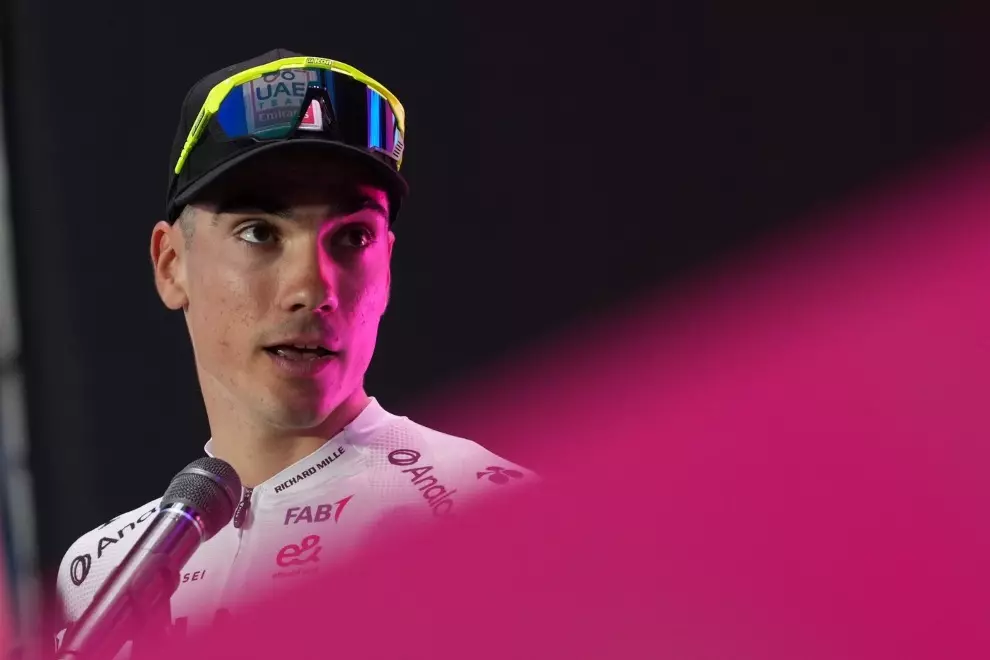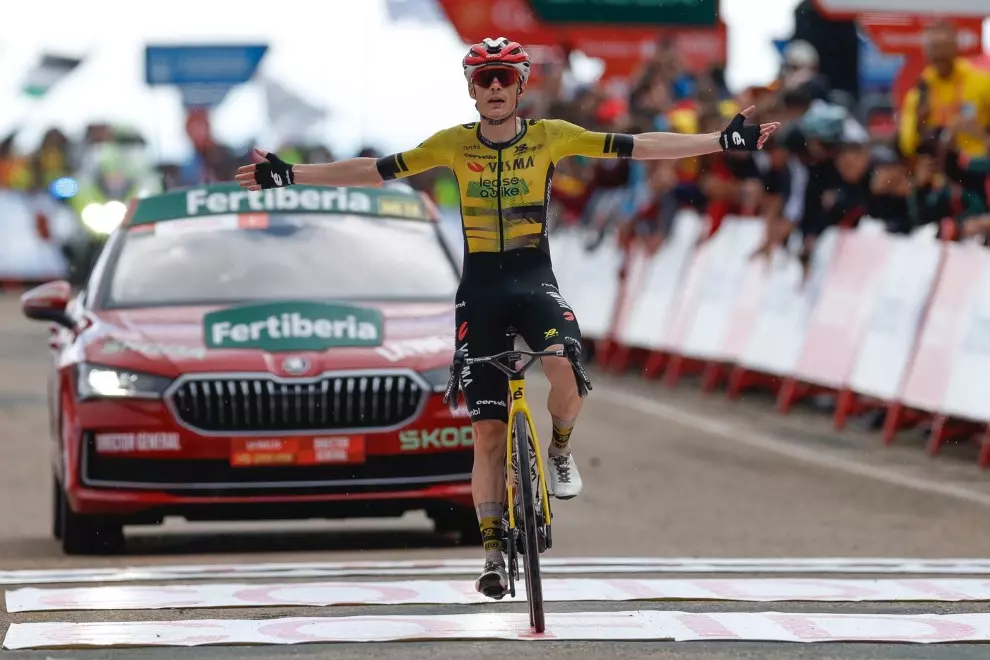An uncivil war
During Monday’s rest day, UAE released a statement on its website that declared, in part, “UAE Team Emirates–XRG and Spanish rider Juan Ayuso have mutually agreed to an early termination of his contract, which was originally set to run until 2028. Ayuso will now remain on the roster until the end of 2025 after a decision was made following differences in the vision of development plans and in the alignment with the team’s sporting philosophy.”
UAE then quoted team CEO Mauro Gianetti as saying: “Juan has been a valuable talent and we are grateful for what we have built together. At the same time, our sporting project has always been focused on continuity, group harmony, and building a winning team. We believe that, in the best interests of both parties, this decision is the most consistent with the values that define our organisation.”
Well, that did not please Ayuso, not at all. “I would have liked to conclude my adventure with the team well, but it’s not possible when you’re dealing with a dictatorship and a unilateral exercise of power,” he told a select group of journalists, according to TuttoBiciWeb, before the start of stage 10. “I want to tell everyone that I don’t agree with the statement released by the team: yesterday, a statement came out around seven in the evening, and I was only notified at six-thirty, when journalists already knew for hours that the statement would be issued.
“We had agreed it would be made public after the Vuelta, to not compromise anything at a sporting level, nor the team atmosphere, nor our teammates. They should be asked why it was released yesterday, why it was so sudden and without notice. Obviously, I have clear ideas about why they did it, to try to damage my image again, as the statement confirms, which I disagree with. And when I pointed this out, they responded that the first draft was much worse and that, therefore, I should be happy about it.”
More words of the same tone followed, suggesting that UAE are in the midst of a civil war. Not the best conditions for team leader João Almeida’s battle against Jonas Vingegaard (Visma–Lease a Bike), who leads the Portuguese rider by 38 seconds in the GC. Though Ayuso did say on Tuesday: “João deserves all the support I can give him and that’s what I’ll try to do.” Not that he hasn’t had ample chances to help him already, but he abstained, citing fatigue.
Vingegaard and Visma | Lease a Bike Strike a Blow as Ayuso Backpedals Again
Is Ayuso worth the bother?
That makes two Grand Tours that Ayuso has helped sabotage for his team – though UAE contributed to the chaos by not making a decision about who was the team leader in the Giro d’Italia and by again choosing “co-leaders” for this Vuelta, a choice that suited no one, especially not the wayward Spaniard. The UAE’s dithering in the Giro contributed to del Toro losing the race on the final stage to Simon Yates. Who knows what it will do to Almeida’s chances now.
But one thing is clear: By announcing Ayuso’s defection in the middle of the Vuelta, UAE only made the situation worse. The rumours would have faded away, as they always do, and the team might have had a tranquil race – though Ayuso has been a wild card throughout the first week of the race and certainly did himself no favours with his bitter rant on Tuesday. But he just couldn’t control his anger and his feelings of injustice.
I have to wonder what his next team – whether it’s Lidl-Trek or another big, moneyed squad – thinks of his behaviour. Will they perhaps fear that, if Ayuso can do this to the most successful team on the road, he could just as easily do it to them? Unless, of course, they despise UAE so much that they are rubbing their hands with glee over the knife Ayuso thrust into its back. Whoever signs him will inherit a problem. Ayuso sees himself as a team leader and will probably accept no other role.
He certainly gave no thought to his reputation, such as it was. Regardless of what he has said and will say in the future, he will always be seen by many in the sport as a selfish loner, eschewing the team for his own needs and goals. It isn’t so much the breaking of the contract – that is now a trend and may eventually become a wave – but the way he did it, after clearly refusing to work for Almeida even though he, Ayuso, has said that he was not targeting the GC in the Vuelta.
I’m fairly certain that his stunning performance on stage 7 was meant to show his future team, or prospective teams, that they are getting a top rider. And they are. Ayuso is a terrific climber and a very good time trial rider. What he isn’t is a team player. And there’s a chance that he may not be as good as he thinks he is. After all, Isaac del Toro proved to be the better rider in the Giro – though Ayuso was the team leader, until he wasn’t. He is intelligent and articulate and clearly loves his dog, which he sometimes brings on the podium. But he’s only 22 and needs to grow up and realise that he is only harming himself.
He did ride for Almeida on stage 19, but only in the flat and only for 5 minutes, dropping away before the start of the final climb. I’m certain he will go for another stage win, on his own, in the next few days. On that climb, Almeida was alone again, with no UAE domestique there to help him. They are probably saving their legs for the big mountains, but Jay Vine was up ahead winning the stage, his second win in this Vuelta and UAE’s fourth. Yes, that was important for the team because it momentarily diverted the conversation from Ayuso. But Almeida is going for the big prize. Surely that’s worth more than a single stage. But what do I know? (And, just to be up-to-date, Vingegaard recaptured the race leader’s red jersey on the stage.)
Will contracts become meaningless?
More importantly, perhaps, is what effect the latest high-profile contract break – after Remco Evenepoel (Soudal Quick-Step) and Derek Gee’s ongoing attempt to leave Israel– Premier Tech – will have on the future of, well, contracts. The UCI fine for breaking a contract before its expiration date is half the rider’s annual salary. But the team that takes the rider from his contracted team always compensates that team for taking the rider. In other words, they buy the rider, just as the Liverpool football club bought Swedish striker Alexander Isak from Newcastle for £130 million. Red Bull–BORA–hansgrohe didn’t pay Soudal nearly that amount for Evenepoel, but you can be sure that it took a big bite out of its piggybank.
What if this trend turns into a wave? One consequence will be that teams with small budgets won’t be able to hold on to their top riders if big-budget teams come calling. And what will it do to the integrity of the professional contract? Because what’s a contract worth if it doesn’t mean anything? I expect more riders to try to opt out of their contracts in the future, so perhaps it will simply become a part of the sport’s business landscape, as banal as million-euro salaries.


